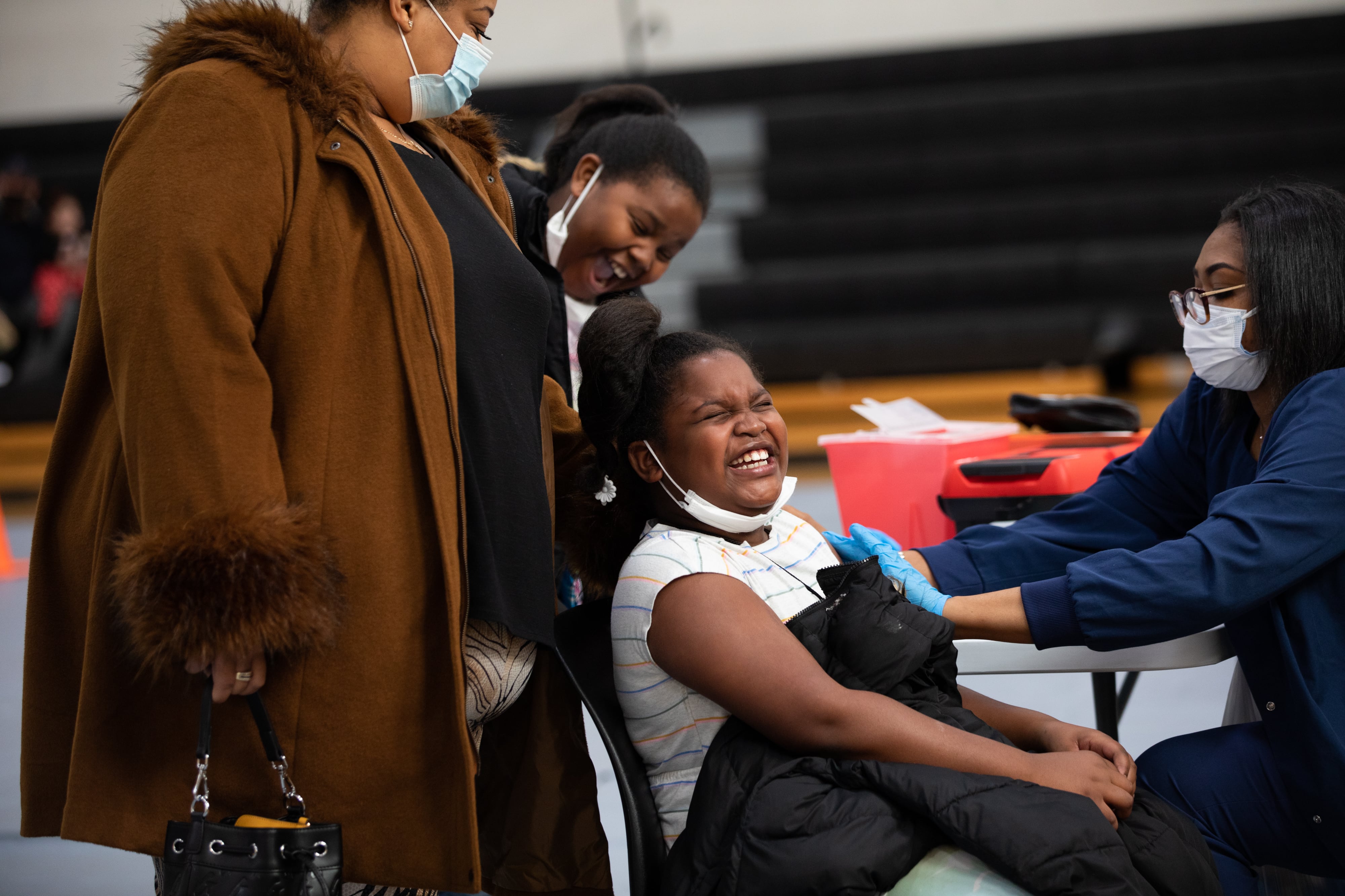With COVID-19 bivalent boosters now available to elementary school-age children, health and school leaders are encouraging vaccination to stave off another winter surge.
The federal Food and Drug Administration and the Centers for Disease Control and Prevention expanded eligibility last week for the new bivalent booster to include children as young as 5, after making it widely available on Aug. 31 for those 12 and older.
The updated booster for 5- to 11-year-olds is already being administered at pediatricians’ offices, pharmacies, and city-run vaccination sites, Dr. Allison Arwady, the city’s health commissioner said Tuesday morning, noting that shipments were still rolling in.
About 93,685 Chicago students are eligible for an updated booster, Arwady said.
“You should get it now,” Arwady said. “You should not wait until a potential surge in November or December.”
Chicago Public Schools’ vaccine sites will offer the updated vaccine later this week. The district will alert families when the bivalent booster is available to 5- to 11-year-olds.
There are weekend vaccine clinics at Chicago City Colleges and vaccine events at elementary and high schools. Still, school-age children remain Chicago’s least vaccinated group.
As of the end of August, about 60% of Chicagoans ages 5 to 17 had completed the primary vaccine series, but only about 16% had received a booster. Among 12- to 17-year-olds, only 5,513 had received the updated booster as of Oct. 12, according to city data.
Chicago students returned to schools with fewer COVID precautions in place two months ago. Since then, new variants have emerged. District leaders and health officials are urging parents to get their students vaccinated to prevent severe illness and hospitalization ahead of a winter surge.
Here are a few things to know about the booster.
What is the bivalent booster?
Because COVID-19 has mutated multiple times since the first vaccines were developed, people who are vaccinated may not be as protected as they initially were. The new bivalent COVID-19 boosters include components of the original virus and the omicron strains and thus protect against the more transmissible omicron variants. The old boosters are no longer available.
Just as was done with the original vaccine, children under the age of 12 get smaller doses of the booster than what’s offered to teens and adults. But it’s a one-and-done shot for all age groups.
Who is eligible?
Anyone age 5 and older can get a booster. The Pfizer vaccine can be administered for 5- to 11-year-olds, and the Moderna booster can be given to children from 6 to 17 years old.
Children who completed the primary series of vaccinations are eligible for a booster if they’re two months past their second shot or last booster.
Where can I go to get my child vaccinated?
Officials said booster doses are being distributed in pediatricians’ offices, hospitals, pharmacies, clinics organized by the health department, and schools.
Chicago Public Schools continues vaccinations at four regional hubs: Michele Clark Magnet High School on the city’s West Side; Richards High School and Chicago Vocational on the city’s South Side; and Roosevelt High School on the city’s Northwest Side. Appointments can be found here.
The district is hosting vaccine clinics across the city. To book an appointment or see the schedule click here.
The Chicago Department of Public Health (CDPH) is also hosting vaccination clinics at City Colleges of Chicago. Registration is recommended. Locations and time can be found here.
CDPH is also hosting aldermanic vaccine clinics across the city. Locations can be found below city college vaccination sites here.
Pharmacies including CVS and Walgreens are running their own registration, but appointments may be limited.
Mauricio Peña is a reporter for Chalkbeat Chicago, covering K-12 schools. Contact Mauricio at mpena@chalkbeat.org.






